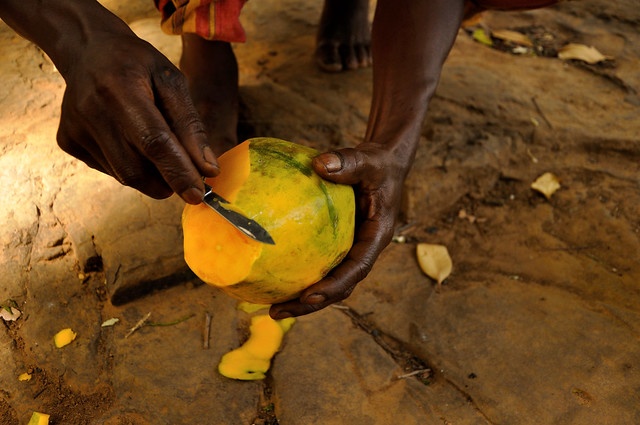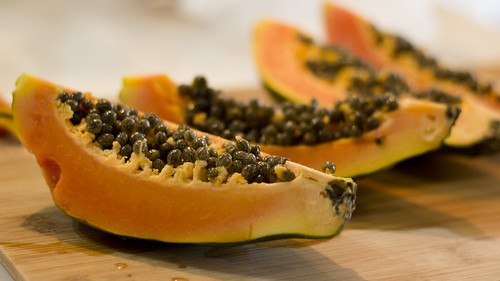Papaya relish Papaya recipe
Making tropical pawpaw papaya relish unique recipe using a fruit with a sweet taste, vibrant color, and the wide variety of health benefits cannot help but make the best papaya relish ever.

There are countless Papaya Recipes from sweet to savory, Tropical PawPaw Papaya Relish Recipe incorporates both flavors.
Tropical PawPaw Papaya Relish Recipe

African Recipes by African Gourmet
Easy sweet and savory Tropical African PawPaw Papaya Relish recipe is made with ripe papaya, onions, ginger, cloves, and raisins. Serve Tropical African PawPaw Papaya Relish over grilled, baked or fried fish.
Prep time:
Cook time:
Total time:
Ingredients
1 large ripe papaya, seeded, peeled and sliced
½ cup raisins
1 cup diced red onions
¼ cup minced fresh ginger
½ cup papaya juice
¼ cup white distilled vinegar
½ teaspoon ground cloves
½ cup granulated sugar
Directions
Add all ingredients into a large saucepan. Simmer on medium low for 10-15 minutes until papaya is tender. Allow to cool and store in an airtight container in the refrigerator at least 24 hours before serving. Serve over grilled, baked or fried fish.
Papaya seeds have antioxidant properties and compounds that may kill parasites and studies have shown papayas flesh helps to fight inflammation.
More economical easy lunch and dinner recipes to make right now so you never have to eat or prepare a boring meal again.
- Curried Tanzanian Coconut Okra Recipe
- Yedoro Stir Fried Ethiopian Chicken Dinner
- Senegalese Chicken Vermicelli
- Caldo Verde Portuguese Kale Soup
- Air Fryer Black Eyed Pea Dumpling Stew



























